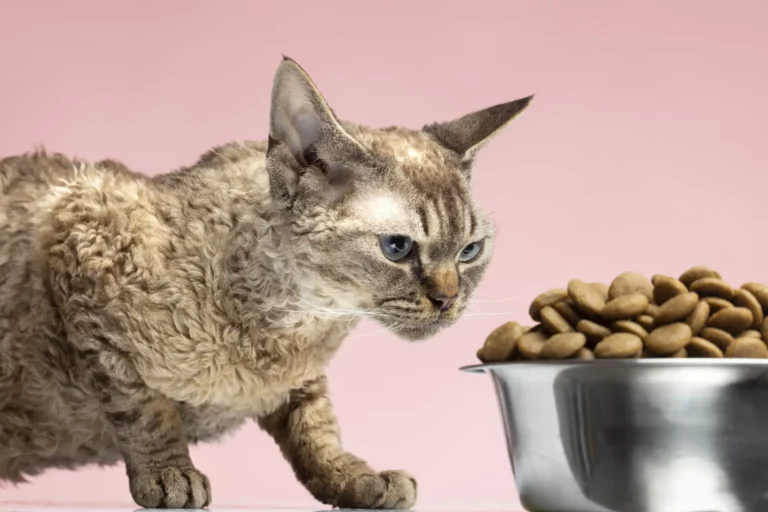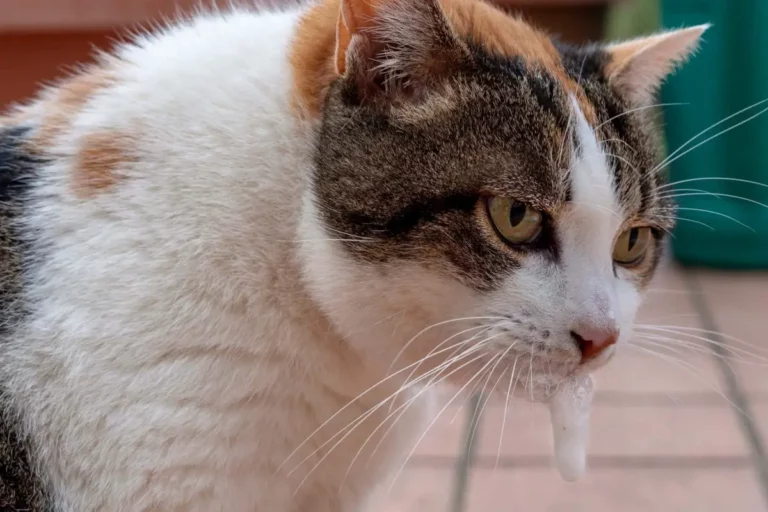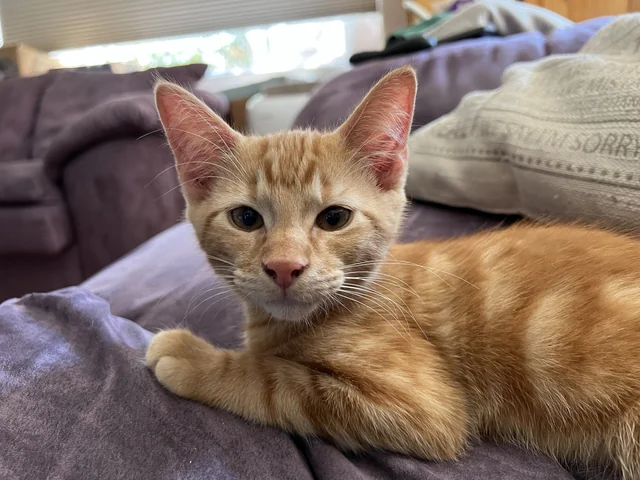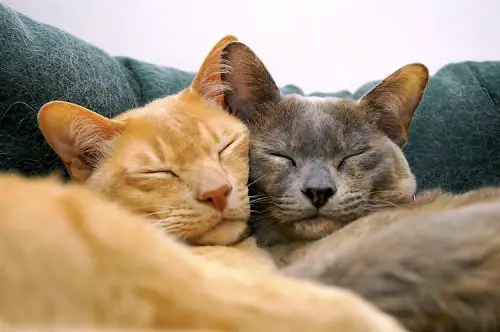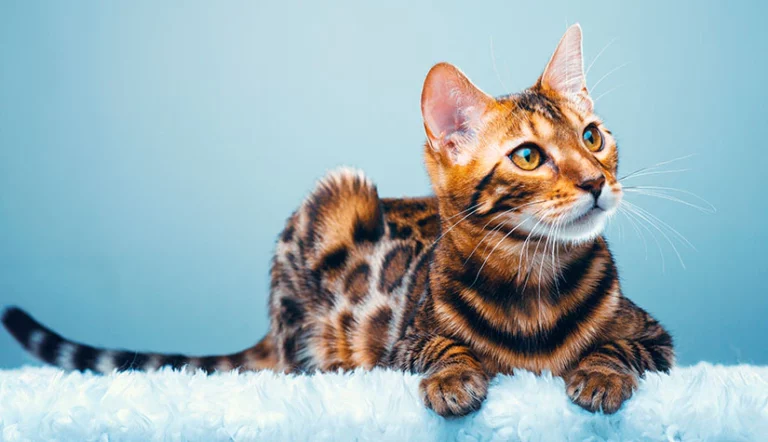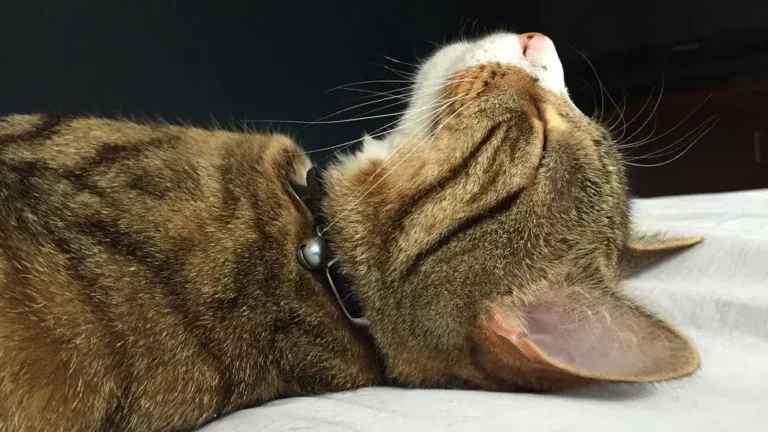Can Cats Eat Garbanzo Beans? What You Need to Know
As obligate carnivores, cats need a high protein, low carbohydrate diet. But what about human foods like garbanzo beans, also known as chickpeas? Though safe for humans, are they safe for cats?
This article will delve into the nutritional value of garbanzo beans for cats, their potential benefits and risks, and safe ways to introduce them into your cat’s diet. We’ll also tackle common questions about cats and garbanzo beans for a well-informed decision about your feline friend’s diet.
Key takeaways
Garbanzo beans, also known as chickpeas, are generally safe for cats in moderation.
They’re rich in protein, fiber, and various nutrients but lack the essential amino acids cats require.
Overconsumption can lead to digestive issues in cats due to their high fiber content.
Always cook garbanzo beans properly before offering them to your cat to avoid potential health risks.
Never replace your cat’s regular diet with garbanzo beans—they should only be an occasional treat.
Are Garbanzo Beans Safe for Cats to Eat?
Garbanzo beans are safe for cats to eat, as long as they are cooked and not raw. However, it’s important that cats only consume the occasional bean — garbanzo beans should not become a part of your cat’s diet.
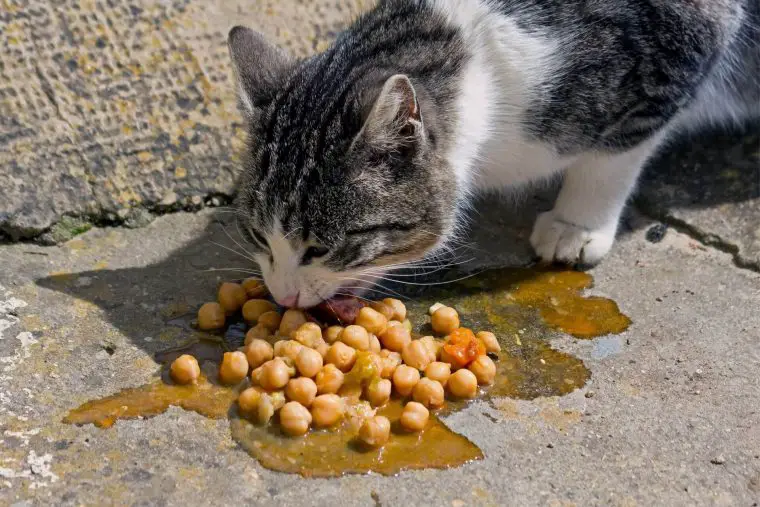
These beans have a high fiber content which can cause digestive issues in cats if they eat too many.
Additionally, it is wise to avoid feeding your cat any flavoring or seasoning when preparing garbanzo beans.
Garbanzo beans can be a nutritious addition to your cat’s diet when fed in moderation and as part of a balanced diet. Here are some key things to keep in mind:
- Nutritional Value: Garbanzo beans are a good source of protein, fibre, and various vitamins and minerals such as iron, magnesium, and folate. However, cats require a diet that is high in animal protein, so garbanzo beans should not be a primary protein source in their diet.
- Possible Benefits: Garbanzo beans may provide some benefits for cats, such as helping to regulate blood sugar levels, aiding in digestion, and promoting healthy skin and coat.
- Risks: While garbanzo beans are generally safe for cats, there are some risks to keep in mind. Overfeeding garbanzo beans can cause digestive problems such as diarrhea or constipation, and cats with a history of kidney disease or urinary tract problems should avoid garbanzo beans as they are high in protein and may exacerbate these conditions. Additionally, garbanzo beans should not be seasoned with any ingredients that may be harmful to cats, such as salt or garlic.
- How to Feed Safely: When feeding garbanzo beans to your cat, it’s important to introduce them slowly and in small amounts. This will help prevent digestive upset and allow you to monitor your cat’s reaction to the new food. You can feed garbanzo beans to your cat either cooked or canned, as long as they are plain and not seasoned with any harmful ingredients. Finally, it’s important to remember that garbanzo beans should not make up a significant portion of your cat’s diet and should only be given as a treat or occasional addition to their regular meals.
How to Introduce Garbanzo Beans to Your Cat
Introducing new foods to cats can be a bit tricky, and garbanzo beans are no exception. Here are some tips to help you introduce garbanzo beans to your cat safely:
- Start Slow: When introducing a new food to your cat, it’s important to start slow. Begin by giving your cat a very small amount of garbanzo beans mixed in with their regular food. Gradually increase the amount of garbanzo beans over several days until your cat is eating a full portion.
- Monitor Your Cat’s Reaction: Keep an eye on your cat for any signs of digestive upset or allergic reaction. Symptoms of an allergic reaction may include vomiting, diarrhea, itching, and skin irritation. If you notice any of these symptoms, stop feeding garbanzo beans to your cat immediately and contact your veterinarian.
- Choose Plain Garbanzo Beans: When feeding garbanzo beans to your cat, it’s important to choose plain beans that are not seasoned with any harmful ingredients. Avoid garbanzo beans that are seasoned with salt, garlic, or other herbs and spices.
- Cooked or Canned Garbanzo Beans: You can feed your cat either cooked or canned garbanzo beans, as long as they are plain and not seasoned with any harmful ingredients. If using canned beans, be sure to rinse them thoroughly before feeding them to your cat to remove any excess salt or other additives.
- Portion Control: Garbanzo beans should only make up a small portion of your cat’s diet and should be given as a treat or occasional addition to their regular meals. Too many garbanzo beans can cause digestive upset, so it’s important to feed them in moderation.
By following these tips, you can safely introduce garbanzo beans to your cat and monitor their reaction to this new food. As always, consult with your veterinarian before making any significant changes to your cat’s diet.
FAQs about Cats and Garbanzo Beans
Can cats eat hummus?
It is generally not recommended to feed cats hummus as it often contains ingredients that are harmful to cats, such as garlic and onion.
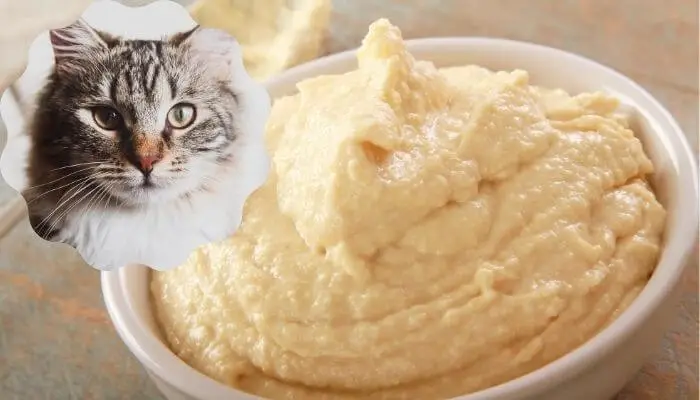
Are canned or cooked garbanzo beans safe for cats?
Canned or cooked garbanzo beans can be safe for cats as long as they are plain and not seasoned with any ingredients that may be harmful to cats, such as salt or garlic.
Are there any cats that shouldn’t eat garbanzo beans?
Cats with a history of kidney disease or urinary tract problems should avoid garbanzo beans as they are high in protein and may exacerbate these conditions.
What are the symptoms of garbanzo bean allergy in cats?
Symptoms of garbanzo bean allergy in cats may include vomiting, diarrhea, itching, and skin irritation.
Can garbanzo beans cause digestive problems in cats?
Yes, feeding too many garbanzo beans to cats can cause digestive problems such as diarrhea or constipation. It is important to introduce new foods slowly and in small amounts.
Final Words on Can Cats Eat Garbanzo Beans
Garbanzo beans can be a nutritious addition to your cat’s diet when fed in moderation and as part of a balanced diet.
They provide protein, fibre, and various vitamins and minerals.
However, it is important to keep in mind that cats require a diet that is high in animal protein and garbanzo beans should not be the primary protein source in their diet.
Overfeeding garbanzo beans can cause digestive problems, and cats with a history of kidney disease or urinary tract problems should avoid them.
When feeding garbanzo beans to your cat, it’s important to introduce them slowly and in small amounts, and to choose plain beans that are not seasoned with any harmful ingredients.
As always, consult with your veterinarian before making any significant changes to your cat’s diet.

